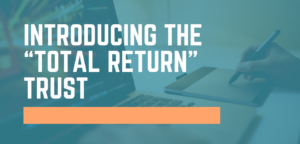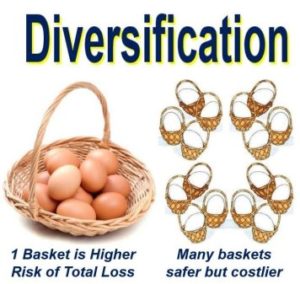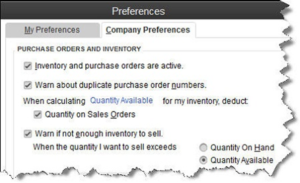Deductible Business Expenses

Deductible Business Expenses
Business expenses are the cost of carrying on a trade or business. These expenses are usually deductible if the business is operated to make a profit.
What Can I Deduct?
To be deductible, a business expense must be both ordinary and necessary. An ordinary expense is one that is common and accepted in your trade or business. A necessary expense is one that is helpful and appropriate for your trade or business. An expense does not have to be indispensable to be considered necessary.
***
It is important to separate business expenses from the following expenses:
- The expenses used to figure the cost of goods sold,
- Capital Expenses
- Personal Expenses.
Cost of Goods Sold
If your business manufactures products or purchases them for resale, you generally must value inventory at the beginning and end of each tax year to determine your cost of goods sold. Some of your expenses may be included in figuring the cost of goods sold. Cost of goods sold is deducted from your gross receipts to figure your gross profit for the year. If you include an expense in the cost of goods sold, you cannot deduct it again as a business expense.
The following are types of expenses that go into figuring the cost of goods sold:
- The cost of product or raw materials, including freight
- Storage
- Direct labor costs (including contributions to pensions or annuity plans) for workers who produce the products)
Factory overhead
Under the uniform capitalization rules, you must capitalize the direct costs and part of the indirect costs for certain production or resale activities. Indirect costs include rent, interest, taxes, storage, purchasing, processing, repackaging, handling, and administrative costs.
This rule does not apply to personal property you acquire for resale if your average annual gross receipts (or those of your predecessor) for the preceding 3 tax years are not more than $10 million.
Capital Expenses
You must capitalize, rather than deduct, some costs. These costs are a part of your investment in your business and are called capital expenses. Capital expenses are considered assets in your business. There are, in general, three types of costs you capitalize.
- Business start-up cost (See the note below)
- Business assets
- Improvements
Note: You can elect to deduct or amortize certain business start-up costs.
Personal versus Business Expenses
Generally, you cannot deduct personal, living, or family expenses. However, if you have an expense for something that is used partly for business and partly for personal purposes, divide the total cost between the business and personal parts. You can deduct the business part.
For example, if you borrow money and use 70% of it for business and the other 30% for a family vacation, you can deduct 70% of the interest as a business expense. The remaining 30% is personal interest and is not deductible.
Business Use of Your Home
If you use part of your home for business, you may be able to deduct expenses for the business use of your home. These expenses may include mortgage interest, insurance, utilities, repairs, and depreciation. Refer to Publication 587, Business Use of Your Home, and Standard Mileage Rates.
Business Use of Your Car
If you use your car in your business, you can deduct car expenses. If you use your car for both business and personal purposes, you must divide your expenses based on actual mileage.
Other Types of Business Expenses
- Employees’ Pay – You can generally deduct the pay you give your employees for the services they perform for your business.
- Retirement Plans – Retirement plans are savings plans that offer you tax advantages to set aside money for your own, and your employees’, retirement.
- Rent Expense – Rent is any amount you pay for the use of property you do not own. In general, you can deduct rent as an expense only if the rent is for property you use in your trade or business. If you have or will receive equity in or title to the property, the rent is not deductible.
- Interest – Business interest expense is an amount charged for the use of money you borrowed for business activities.
- Taxes – You can deduct various federal, state, local, and foreign taxes directly attributable to your trade or business as business expenses.
- Insurance – Generally, you can deduct the ordinary and necessary cost of insurance as a business expense, if it is for your trade, business, or profession.
Source: Internal Revenue Service
We hope you found this article about “Deductible Business Expenses” helpful. If you have questions or need expert tax or family office advice that’s refreshingly objective (we never sell investments), please contact us or visit our Family office page or our website at www.GROCO.com. Unfortunately, we no longer give advice to other tax professionals gratis.
To receive our free newsletter, contact us here.
Subscribe our YouTube Channel for more updates.

Alan Olsen, is the Host of the American Dreams Show and the Managing Partner of GROCO.com. GROCO is a premier family office and tax advisory firm located in the San Francisco Bay area serving clients all over the world.
Alan L. Olsen, CPA, Wikipedia Bio

GROCO.com is a proud sponsor of The American Dreams Show.

The American Dreams show was the brainchild of Alan Olsen, CPA, MBA. It was originally created to fill a specific need; often inexperienced entrepreneurs lacked basic information about raising capital and how to successfully start a business. Alan sincerely wanted to respond to the many requests from aspiring entrepreneurs asking for the information and introductions they needed. But he had to find a way to help in which his venture capital clients and friends would not mind.
The American Dreams show became the solution, first as a radio show and now with YouTube videos as well. Always respectful of interview guest’s time, he’s able to give access to individuals information and inspiration previously inaccessible to the first-time entrepreneurs who need it most. They can listen to venture capitalists and successful business people explain first-hand, how they got to where they are, how to start a company, how to overcome challenges, how they see the future evolving, opportunities, work-life balance and so much more..
American Dreams discusses many topics from some of the world’s most successful individuals about their secrets to life’s success. Topics from guest have included:
Creating purpose in life / Building a foundation for their life / Solving problems / Finding fulfillment through philanthropy and service / Becoming self-reliant / Enhancing effective leadership / Balancing family and work…

MyPaths.com (Also sponsored by GROCO) provides free access to content and world-class entrepreneurs, influencers and thought leaders’ personal success stories. To help you find your path in life to true, sustainable success & happiness. It’s mission statement:
In an increasingly complex and difficult world, we hope to help you find your personal path in life and build a strong foundation by learning how others found success and happiness. True and sustainable success and happiness are different for each one of us but possible, often despite significant challenges. Our mission at MyPaths.com is to provide resources and firsthand accounts of how others found their paths in life, so you can do the same.
Introducing the “Total Return” Trust
Introducing the “Total Return” Trust The fundamental purpose of most trusts is to create a plan of financial protection for more than one beneficiary, often beneficiaries in different generations. “All the trust income to my surviving spouse, with the balance to be divided among our children at her death” might be used in a marital…
Making Tax-wise Investments
Making Tax-wise Investments Tax considerations are not, and should never be, the be-all and end-all of investment decisions. The choice of assets in which to invest, and the way in which you apportion your portfolio among them, almost certainly will prove to be far more important to your ultimate results than the tax rate that…
Reducing Risk With a Diversified Portfolio
Reducing Risk With a Diversified Portfolio Have you been worried about the stock market’s recent volatility? You’re not alone. The stock market in March was a roller-coaster ride that served as a reminder to investors that the market’s ups and downs can be a little dizzying. But a volatile market should not leave you feeling…
Are You Defining Items in QuickBooks Correctly?
[vc_row][vc_column][vc_column_text] Create item records in QuickBooks carefully, and QuickBooks will return the favor by running useful, accurate reports. Figure 1: Clearly-defined items result in precise reports. Obviously, you’re using QuickBooks because you buy and/or sell products and/or services. You want to know at least weekly — if not daily — what’s selling and what’s…




